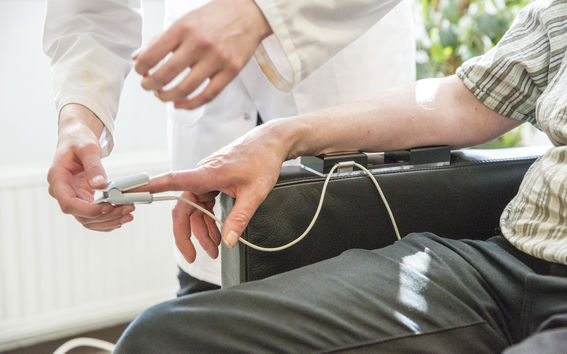Good care with fewer resources - a virtual care operator streamlines the patient journey for people with multiple and long-term conditions

People with multimorbidity and chronic diseases account for around 10% of all patients, but they consume 80% of healthcare resources. Good care requires coordination between specialists, collection of patient data, management of appointments and monitoring of the balance of medicines. With so many care providers, the patient journey is often fragmented and inefficient with current digital tools.
Paul Lillrank, Professor at Aalto UniversityNo one is really responsible for the patient's overall situation, and timely care is compromised.
Paul Lillrank is the scientific leader of the MASSE project, which uses technology to solve the problem. Researchers in the project have created the design principles for a virtual care operator, which brings together the data that is essential to a patient's care on a single platform and uses it to monitor the patient's progress, support the coordination of doctor and nurse appointments and collect feedback from the patient.
"At the heart of the system is a customized, updatable patient card for each patient, which brings together information from different databases about the patient's care in one place," says Lillrank.
A tailored view of the patient's situation
With a patient card, all parties involved in the care of a patient would have access to the same up-to-date information on the patient's situation. This will allow monitoring of the implementation of care plans. Each care provider could also have a view of the patient's situation tailored to their needs.
The focus would be on goals set by the patient, for example to improve mobility or reduce medication, which would be visible to all those involved in the care. The platform would integrate devices, therapies and digital patient journeys developed by companies in addition to public service providers. A shared, cross-organisational view of patient journeys will support the monitoring of care and the coordination of different services.
The virtual care operator also includes a platform called the service card, which provides healthcare professionals and clients with up-to-date information on available services.
"Patients with multiple problems need many different services, but the information and tools available to coordinate these services are inadequate. The service card helps to address this," says Paulus Torkki, Associate Professor and Project Director for MASSE at the University of Helsinki.
Personalised care with mass production efficiency
The development of care for people with multimorbidity and chronic diseases is key to addressing the resource challenge in Finland's healthcare system.
A virtual care operator would reduce the disruptions that occur in complex patient populations, such as data gaps in treatment follow-up. This would allow good care to be delivered with fewer resources and less effort.
"With a virtual care operator, personalised care for the chronic patient would be feasible with mass production efficiency. By seeing everything relevant on one screen, doctors can spend less time poring over information and more time listening to the patient," says Paul Lillrank.
Towards prototypes
In the two-year MASSE project, researchers have produced design principles for a care management system, outlined an IT solution to support patient and service cards, and sketched out a business and revenue model.
The researchers are now putting together a consortium to build a virtual care operator. The prototype will be tested and developed with healthcare professionals and patients in Finland. The aim is also to make it into an export product.
The MASSE project, funded by Business Finland, involves the University of Helsinki, the Hospital District of Helsinki and Uusimaa (HUS), Orion Oyj, Lääketietokeskus Oy, Suomen Fysiogeriatria Oy, PatientSky Finland Oy, Suomen Terveystalo Oy, Klinik Healthcare Solutions Oy and VitalSignum Oy.
Final report from the project is available in Finnish here.
Are you interested in collaborating, want to give us tips on the topic or want to hear more? Contact us!
Read more news

Significant donation to boost pavement engineering research and education
Companies and associations in the field have donated €400,000 to the School of Engineering.
‘Mesoscale’ swimmers could pave way for drug delivery robots inside the body
Researchers have discovered how tiny organisms break the laws of physics to swim faster — such secrets of mesoscale physics and fluid dynamics can offer entirely new pathways for engineering and medicine.
Design strengthens industrial competitiveness – human-centered factory work at the core
Factory work is undergoing a transformation: new technologies and artificial intelligence are changing the content and roles of work. Aalto University’s Department of Design is studying this change from a human-centered perspective in the HiFive project.






